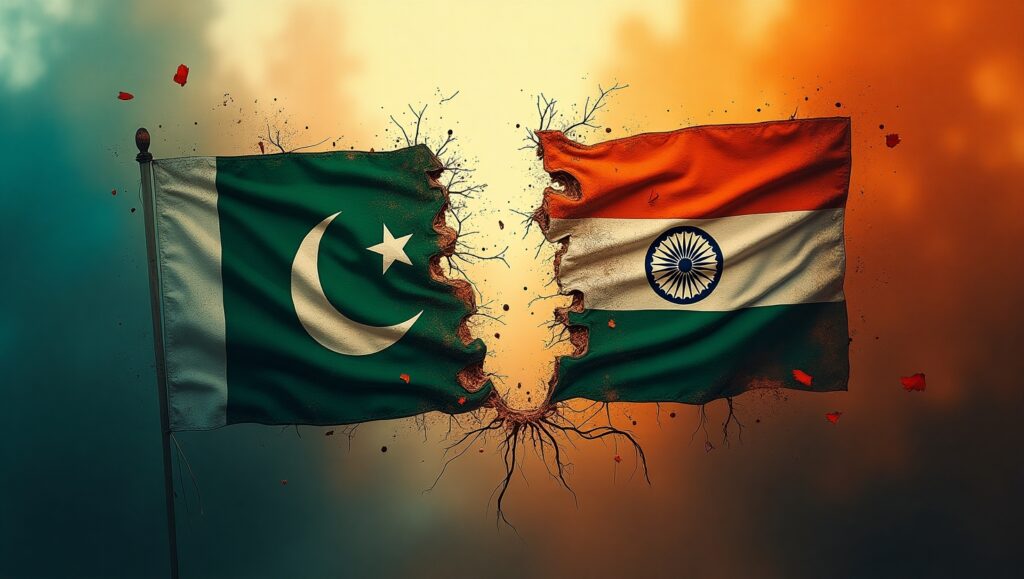The long-standing Kashmir conflict between Pakistan and India has once again escalated, with both nuclear-armed neighbors exchanging accusations of aggression and violations. As tensions rise, Pakistan has reiterated its stance on the dispute, calling for international intervention while condemning India’s actions in the disputed region. Here’s what we know so far.

Recent Escalations
In recent weeks, skirmishes along the Line of Control (LoC) have intensified, with both sides reporting ceasefire violations. Pakistan’s military has accused Indian forces of unprovoked shelling in civilian areas, resulting in casualties and displacement. Islamabad claims that India’s aggressive posturing is an attempt to divert attention from its human rights abuses in Indian-administered Kashmir.
Meanwhile, India has blamed Pakistan for supporting cross-border militancy—a claim Pakistan vehemently denies. Pakistani officials argue that India is using the “terrorism” narrative to justify its heavy-handed military crackdown in the region.
Pakistan’s Position on Kashmir
Pakistan maintains that Kashmir is an internationally recognized disputed territory, as per United Nations resolutions, which call for a plebiscite to allow Kashmiris to determine their own future. Islamabad has consistently advocated for a peaceful resolution through dialogue, but accuses India of sabotaging diplomatic efforts by unilaterally altering the status of Jammu and Kashmir.
In August 2019, India revoked Article 370 of its constitution, stripping Kashmir of its semi-autonomous status—a move Pakistan and many Kashmiris saw as illegal and oppressive. Since then, Pakistan has raised the issue at various international forums, including the United Nations, urging the world to hold India accountable for human rights violations in the region.
Human Rights Concerns
Pakistan has highlighted reports from international human rights organizations documenting extrajudicial killings, enforced disappearances, and mass arrests in Indian-administered Kashmir. Islamabad argues that India’s military occupation has turned the region into an “open-air prison,” with frequent internet shutdowns and restrictions on free movement.
Prime Minister Shehbaz Sharif recently stated that Pakistan will continue to support Kashmiris’ right to self-determination, calling India’s actions a “grave injustice.” Pakistan has also warned that India’s policies risk destabilizing the entire region.
International Response
While Pakistan has sought global intervention, major powers have largely remained cautious, urging both sides to de-escalate. The Organization of Islamic Cooperation (OIC) has repeatedly expressed concern over Kashmir, backing Pakistan’s call for a peaceful resolution. However, India’s growing geopolitical influence, particularly with Western nations, has limited stronger international condemnation.
The Way Forward
Pakistan insists that lasting peace in South Asia hinges on resolving the Kashmir dispute in accordance with UN resolutions and the aspirations of the Kashmiri people. It has called for:
- Immediate cessation of hostilities along the LoC.
- Restoration of Kashmir’s special status and an end to India’s military crackdown.
- Dialogue with international mediation to ensure a fair and just solution.
As the situation remains volatile, the risk of further escalation looms. For now, Pakistan continues to rally diplomatic support while urging the world not to ignore what it calls India’s “brutal occupation” of Kashmir. The question remains: Will the international community step in before the conflict spirals further out of control?